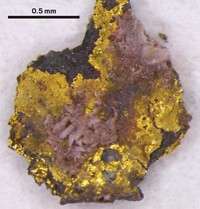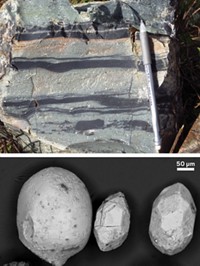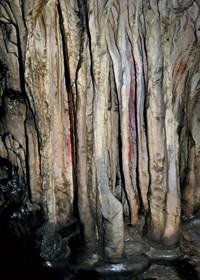Advertisement
Grab your lab coat. Let's get started
Welcome!
Welcome!
Create an account below to get 6 C&EN articles per month, receive newsletters and more - all free.
It seems this is your first time logging in online. Please enter the following information to continue.
As an ACS member you automatically get access to this site. All we need is few more details to create your reading experience.
Not you? Sign in with a different account.
Not you? Sign in with a different account.
ERROR 1
ERROR 1
ERROR 2
ERROR 2
ERROR 2
ERROR 2
ERROR 2
Password and Confirm password must match.
If you have an ACS member number, please enter it here so we can link this account to your membership. (optional)
ERROR 2
ACS values your privacy. By submitting your information, you are gaining access to C&EN and subscribing to our weekly newsletter. We use the information you provide to make your reading experience better, and we will never sell your data to third party members.
Policy
Ancient Humans Were Pigment Chemists
Archaeological findings at a cave workshop in South Africa reveal ochre processing as early as 100,000 years ago
by Sarah Everts
October 17, 2011
| A version of this story appeared in
Volume 89, Issue 42
Bright yellow and red iron oxides known as ochre found in deposits on Earth have long been used as pigments—for example, by early humans to paint their bodies and other objects. Now, archaeologists have discovered a 100,000-year-old ochre-processing workshop in a South African coastal cave, the oldest such site, by 40,000 years, found to date (Science, DOI: 10.1126/science.1211535). Discoveries at the cave document early humanity’s “deliberate planning, production, and curation of a pigmented compound and the use of containers,” notes the research team led by Christopher S. Henshilwood of the University of Bergen, in Norway. “Homo sapiens [of that era] thus also had an elementary knowledge of chemistry and the ability for long-term planning,” the researchers conclude. The team uncovered evidence that these early humans ground the ochre from rock and heated bones to extract fat and marrow that were then used as a binder for the pigments. Charcoal was also sometimes added to the mixture. The ancient paint was then placed in sealed abalone shells for storage.





Join the conversation
Contact the reporter
Submit a Letter to the Editor for publication
Engage with us on Twitter